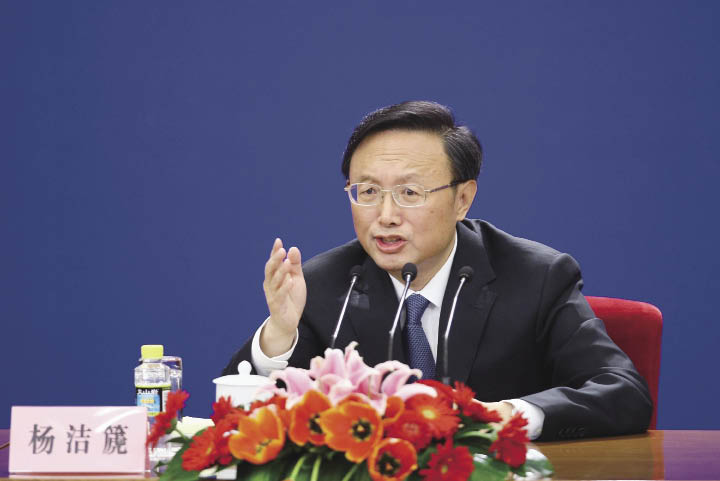|
Sino-US Relations Need Someone to Move over Sometime
By staff reporter LIU YI
DURING China's national parliamentary sessions held in March of each year, there is always a sharp focus by both domestic and foreign media on the press conference dealing with foreign policy and foreign relations. Anticipation of this year's address was particularly acute as relations between China and its key economic partner, the United States, have been under strain. In an effort to smooth things over, Washington dispatched two of its most senior officials to Beijing in early March.
Sino-US relations enjoyed one of the smoothest and most positive transitions of any administration change when Barack Obama took office in January 2009. The former "Strategic Economic Dialogue" and "Strategic Dialogue" were merged into the "Strategic and Economic Dialogues (SAED)" to increase the level of bilateral cooperation. High-level officials began making more frequent visits, including the newly inducted Secretary of State Hilary Clinton, who made Beijing the choice for her first official foreign visit. The two nations' heads of state also managed to meet on several important occasions, including the G20 Summits in London and Pittsburgh. Mr. Obama then made his maiden voyage to China last November, an unprecedented action for a U.S. president in his first year of presidency.
 |
|
Feeling taken for granted: Chinese Foreign Minister Yang Jiechi. China Foto Press |
Despite all these positive leanings, certain bumps in the road began appearing just two months after the new president's state visit. As China celebrated its traditional Spring Festival, bilateral relations grew cold.
Opinion Polls vs. Core Interests
At the beginning of 2010, word came from the Pentagon that it was going ahead with a planned US $ 6.4 billion arms sale to Taiwan. The package would include 114 Patriot Advanced Capability (PAC-3) missiles, the most advanced air defense system in the world, 60 UH-60M Black Hawk helicopters, and 12 Harpoon Block II Telemetry missiles. This move was seen as a venomous effort to sabotage the steadily improving cross-Straits relations. Former Foreign Minister Li Zhaoxing likened it to "handing a dagger to someone as he is hugging his brother" at a press conference held on the lead up to the Third Session of the 11th National People's Congress, the annual parliamentary session.
The Chinese government expressed strong indignation and firm opposition toward the arms sale. However, the move was just a part of the growing darkess that began to shadow Sino-U.S. relations since early this year. In February President Obama met with the Dalai Lama, whom Li Zhaoxing calls "the political monk," in the White House. Obama's precarious action was perceived to be an attempt to shore up his waning public approval ratings at home. Obama, after a challenging first year as president, saw his ratings decline to 47 percent, down from a high of 70 percent as he first entered office. "Obama's foreign policy has not been stable," commented Zhang Guoqing, a research fellow at the Institute of American Studies of the Chinese Academy of Social Sciences. "As a political superstar, he is too easily influenced by powerful domestic lobbies."
|
